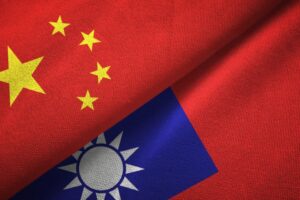The Taiwanese islets, 3 200m from China’s coast, have become a popular tourist destination.

Visiting Taiwan’s tiny Kinmen Islands last week, Joseph Lin practised standing up on his paddleboard, drifting across from the Chinese city of Xiamen, where days earlier fighter jets had screamed overhead.
The Taiwanese islets, 3 200m from China’s coast, have become a popular tourist destination, and Beijing’s massive military drills this month failed to deter domestic visitors from jetting closer to their sabre-rattling neighbour.
Lin, a former soldier from southern Taiwan’s Pingtung county, refused to cancel his three-day trip, saying he believed China was only trying to appease nationalist sentiment at home with its show of force.
“I think Russia’s ongoing war in Ukraine has sent a warning to [Chinese President] Xi Jinping that it would not be so easy to seize Taiwan,” the 35 year old told AFP.
“The price would be too high.”
Tensions in the Taiwan Strait are at their highest in decades as Beijing rages against a visit to Taipei this month by US House Speaker Nancy Pelosi.

In response, China put on unprecedented military drills, firing missiles into the waters around Taiwan, as well as dispatching fighter jets and warships to simulate a blockade of the island.
Even amid the flurry of military activity, tourism continues.
Domestic flights continue to fly to the island, tour groups and buses crowd the islands’ popular sites while visitors hoarding souvenirs dot its airport floor.
Visitors still peer out of observation posts, walk by murals denouncing Beijing and take pictures of China from between anti-landing spikes which dot the beach.
Kinmen is a former battleground, which had to contend with occasional shelling from Chinese artillery into the late 1970s.

ALSO READ: The perfect family holiday at the Wild Coast Sun
But the islets opened up to tourists in 1993 and have never looked back.
Wartime relics and monuments of its militarised past are star attractions, regardless of Kinmen’s proximity to China and the lingering threat of invasion.
“There is no use worrying [about a Chinese invasion]. We should be calm and get on with our lives,” said Vanessa Chu, 52, from the coastal city of Hsinchu.
“I hope for peace, as Taiwan is small and if the tensions continue, Taiwan will suffer more than China,” she added, speaking alongside her two sons.
Many Kinmen residents hold favourable views of China after years of close trade and tourism ties – the island’s main source of drinking water is a pipeline from the mainland.
Visitors from China are currently banned because of Taiwan’s strict Covid rules, which are similar to Beijing’s.
The Chinese Communist Party views Taiwan as part of its territory waiting to be “unified” one day, killing more than 600 people.
On nearby Lieyu, known as Little Kinmen and the closest inhabited islet to China, Taiwanese tourists have their own lookout.
They use a telescope from an old fortress to view a Xiamen billboard that reads “One Country Two Systems, Unifies China”.

The slogan is intended for the Taiwanese, a reference to the deal China made guaranteeing Hong Kong certain freedoms and a high degree of autonomy ahead of its 1997 handover from British rule.
But the majority of Taiwanese have rejected that model, even more so after witnessing Beijing crush political freedoms in Hong Kong over the past three years.
During AFP’s visit, some tourists chuckled when a guide joked that the Chinese could have changed the slogan in Xiamen to “Use of Force, Unify China”.
An elderly tourist from Taipei who declined to give his name said he believed China would not strike Taiwan directly because “there would be too much loss”.
Lin, the former soldier, said he is prepared to fight if needed.
“Taiwan is my home and I am willing to stand out,” he said, paddleboard in hand.
“If we don’t protect Taiwan, who will protect us? Our democracy is valuable.” – AFP.
NOW READ: Watch: Southern Africa’s unexpected ski resort in Lesotho is proving popular
Support Local Journalism
Add The Citizen as a Preferred Source on Google and follow us on Google News to see more of our trusted reporting in Google News and Top Stories.






